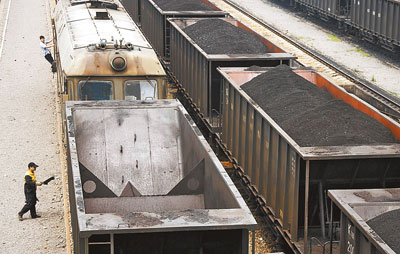
CHINESE State coal firms have raised prices for the second time in a month after a long sequence of cuts, but analysts said a seasonal spike in demand was unlikely to improve the sector’s long-term prospects.
China is the world’s biggest coal producer, but slower economic growth and a State-led effort to switch to cleaner energy have hurt the sector, with 80 percent of firms suffering losses, according to industry data.
The China Coal Transport and Distribution Association (CCTD) said on its website that Shenhua, together with China Coal Energy and Inner Mongolia Yitai Coal, had raised the June price for most grades of coal by another 5-15 yuan (US$0.8-$2.42) per ton.
The firms raised prices of lower-grade coal by 10 yuan per ton in mid-May, anticipating a surge in demand for power over the summer.
“More air-conditioner usage in summer raises demand for power coal, but substitutes like hydropower or wind power are likely to dissipate demand, so I think it is only a test price adjustment to see how the market reacts,” said Zhang Xiaojin, an analyst with China’s Everbright Futures.
The price of Shenhua’s 5,200-kilocalorie/kilogram grade of coal now stands at 395 yuan per ton. The price of its highest 5,500 kcal/kg grade of coal remains unchanged at 462 yuan.
Benchmark 5,500 kcal/kg spot prices at the port of Qinhuangdao, which have lost 22 percent since the start of the year, were unchanged on the week at 410 yuan per ton.
The CCTD said end-user stocks were at a three-year low and the prices of low-grade coal were recovering, but the turnaround was likely to be limited.
“As well as the serious supply and demand imbalance, other non-conventional factors — including a worse-than-forecast economic slowdown, a huge increase in hydropower, a mild winter and rapid downstream destocking — have also piled on the downward pressure,” the CCTD said.
The National Development and Reform Commission, China’s top economy planner, said yesterday that it would strengthen efforts to curb illegal production and take action against users that buy coal produced in violation of regulations.
Output in the first four months of the year reached 1.15 billion tons, 6.1 percent lower over the same period of 2014, official data showed last month.
But government actions were unlikely to have a quick impact, said Zhang of Everbright, noting that the market was expected to remain oversupplied for three to five years.(SD-Agencies)
|

